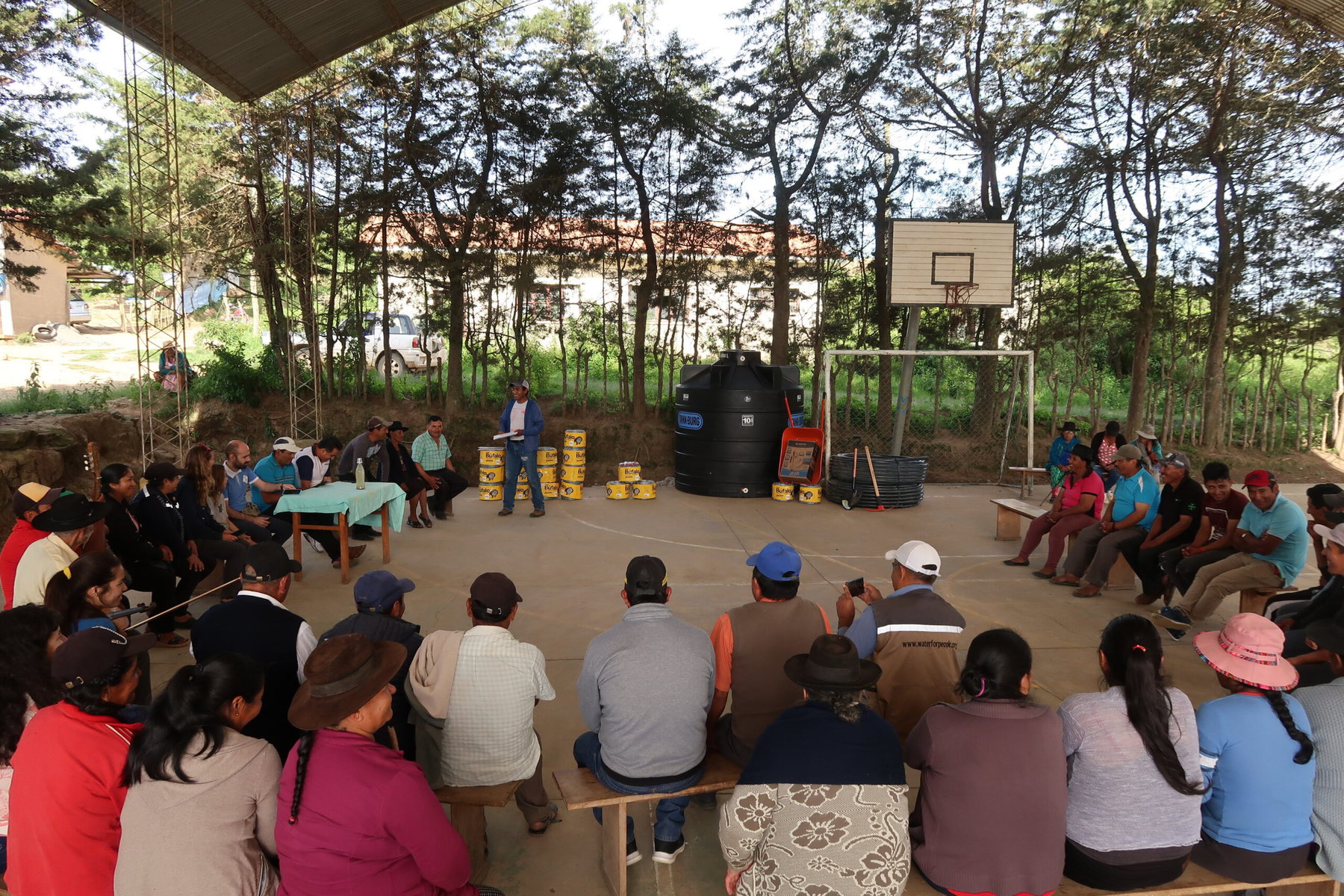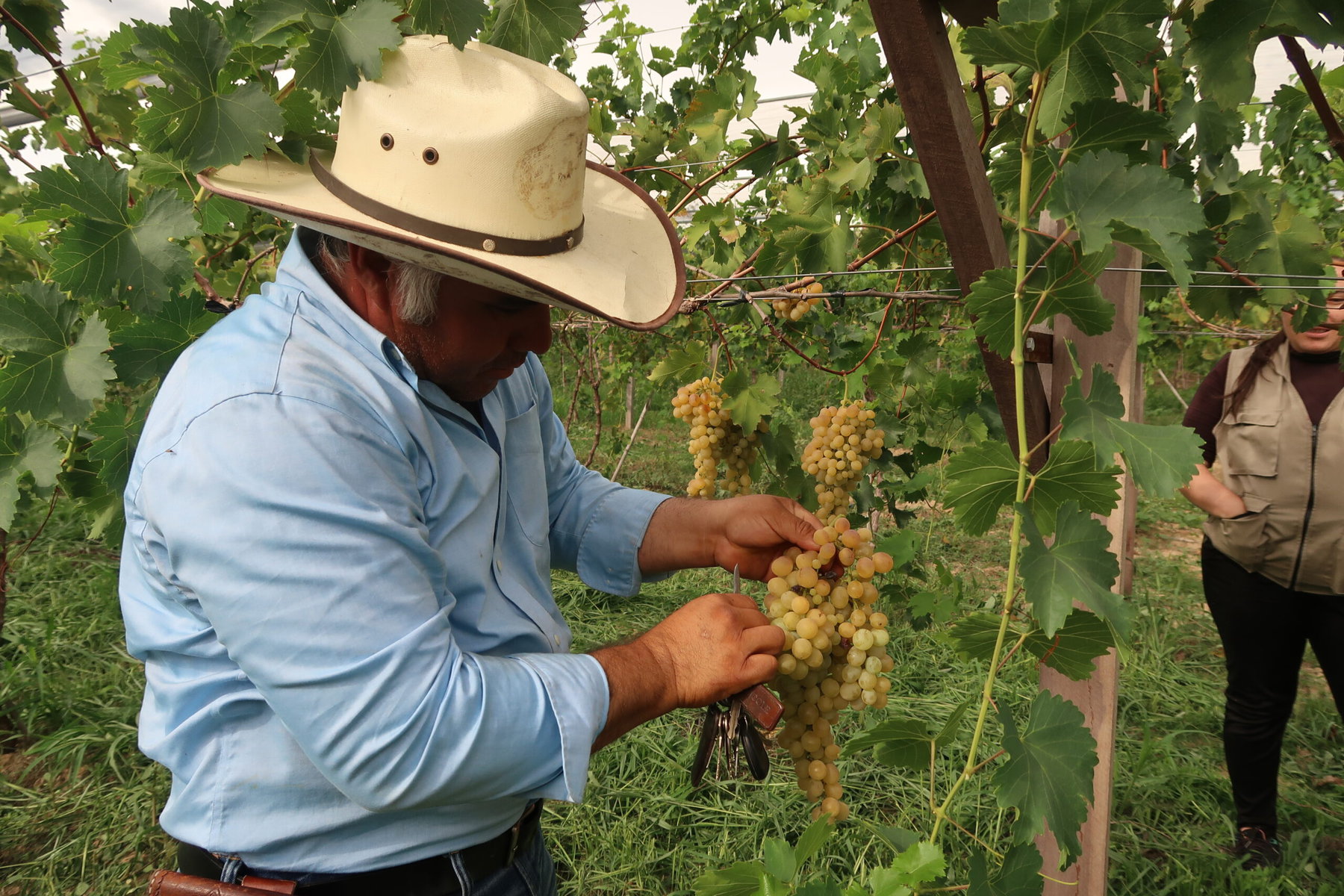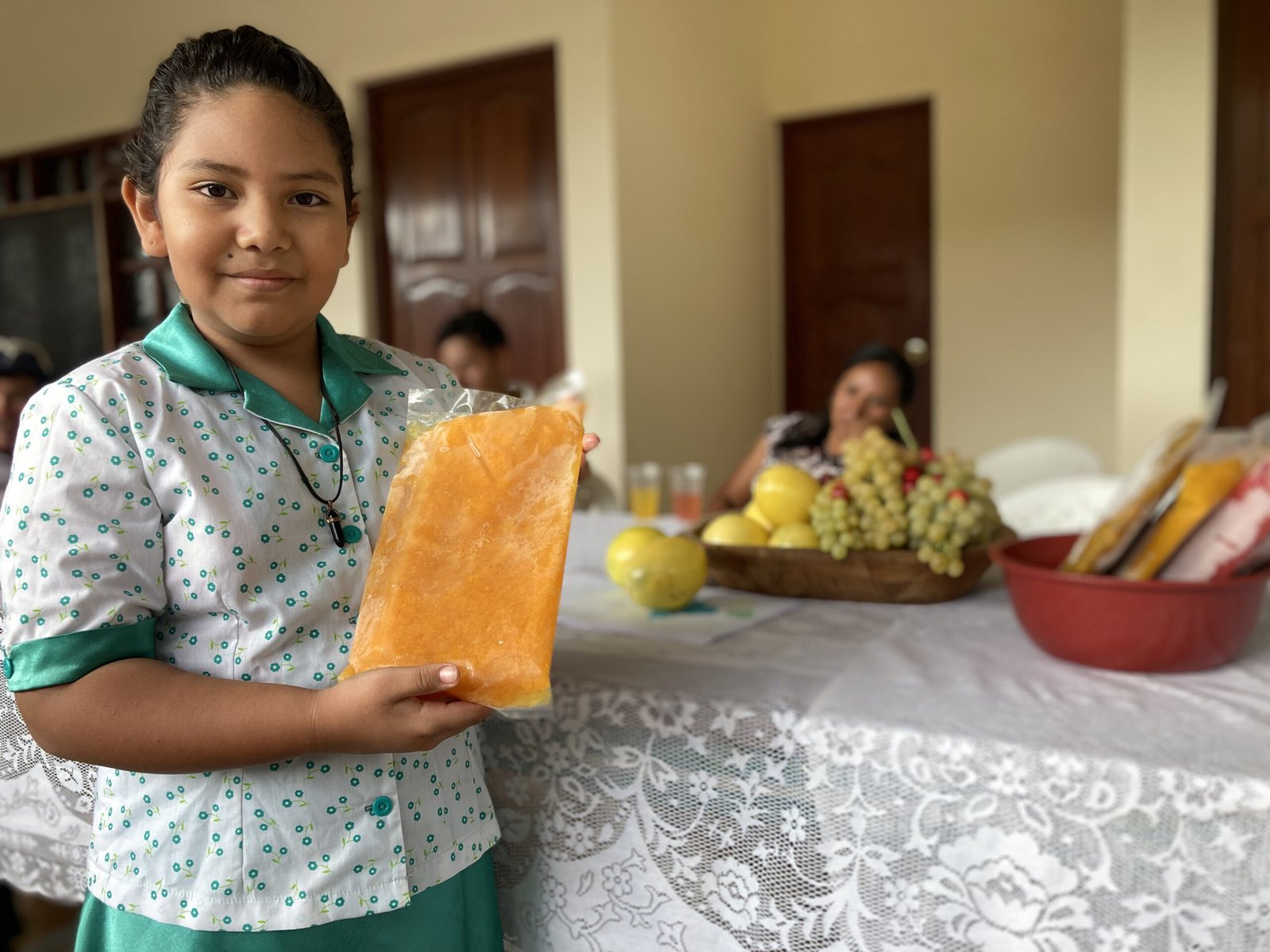Today the reserve is home to 23 breeding pairs of red-fronted macaws, about 13 percent of the species’ total reproductive population, as well as 200 other bird species including Andean condors and peregrine falcons.
This is a great example of how Armonía and other conservation partners in Bolivia are “focused on poverty reduction in the region,” says Tjalle Boorsma, conservation program director for Armonía, “and working together with farmers on sustainable agriculture models like beekeeping or implementing tourism.”
The result? People equate protecting endangered species with protecting their own livelihood.
Crushed by negative news?
Sign up for the Reasons to be Cheerful newsletter.
Fundación Natura Bolivia (Natura) has a similar approach to conservation. They offer tangible non-monetary incentives — like new tanks to capture drinking water, roofing materials for a barn, or fences for livestock — in exchange for landowners’ agreement to protect the forest and natural resources around their community. These reciprocal “watershared” agreements (Acuerdos Reciprocos por Agua in Spanish) are often funded in part by municipalities where people benefit when upstream landowners engage in practices that keep water clean and abundant for downstream users.

Since 2002 Natura has enrolled over 34,000 families in watershared agreements that conserve 730,000 hectares of forest in dozens of municipalities around Bolivia. A common thread tying many of these agreements together? Halting deforestation.
Red-fronted macaws, along with many other wildlife species, lose their natural food sources when farmers cut down or burn the forest. Instead, these macaws eat peanuts, corn and other crops. In retaliation, landowners might poison the birds, kill them with slingshots, or trap them to sell on the black market.
For instance, Jaime Cardona grows grapes, passionfruit, sugar cane and other crops with his nine-year-old daughter and wife in the town of Saipina, 25 kilometers east of the reserve. He used to haze macaws off the property, but now recognizes how beneficial the birds and healthy forests can be for his family’s bottom-line. “We need the trees. That is what attracts the rain,” Cardona explains. “If you do not have forest on the mountain … there will not be good weather, and good weather is necessary for the grapes and the sugar cane to grow.”


Protecting forests is also a way to support the nascent ecotourism industry in central Bolivia. About 10,000 people live in the regional municipality of Saipina, where 48 families have entered watershared agreements that conserve 5,067 hectares. Saipina’s mayor, Efrain Garrado Llenes, hopes the conservation efforts will “preserve the animals that are still here” and entice visitors to come see spectacular birds like the macaws in the future. “We want to leave something for our children for tomorrow so that they do not suffer,” he says.
Just 30 kilometers east in the municipality of Omereque, red-fronted macaws feed on the bean-like pods from the native soto tree. In the past, landowners cut down the trees to fuel fires to process sugar cane. Natura helped build a new drinking water tank for the small community of Ele Ele that supplies 70 families. In exchange, the people agreed to conserve 5,000 hectares of forest.


Sérgio Mendoza, a farmer in Ele Ele, is “very grateful” for the help. He says the previous water tank was 30 years old and falling apart. Thanks to the agreement with Natura and Omereque’s municipal government, “we are seeing the forest regenerate and grow back,” Mendoza says. They now watch macaws “pass through all afternoon in little groups” to forage in the forest.
In Ceibas, a farming community that sits on a picturesque hillside in the Pasorapa municipality, people chose individual incentives instead of one large community project in exchange for protecting 1,078 hectares of forest. One family received a portable combine to grind wheat or corn, another a new roof, and another a water pump to irrigate crops.
“Taking care of the macaw can solve problems for the communities,” explains Máximo García-Cárdenas, coordinator of Natura’s red-fronted macaw program, an initiative supported by the British Government’s Illegal Wildlife Trade Challenge Fund.


